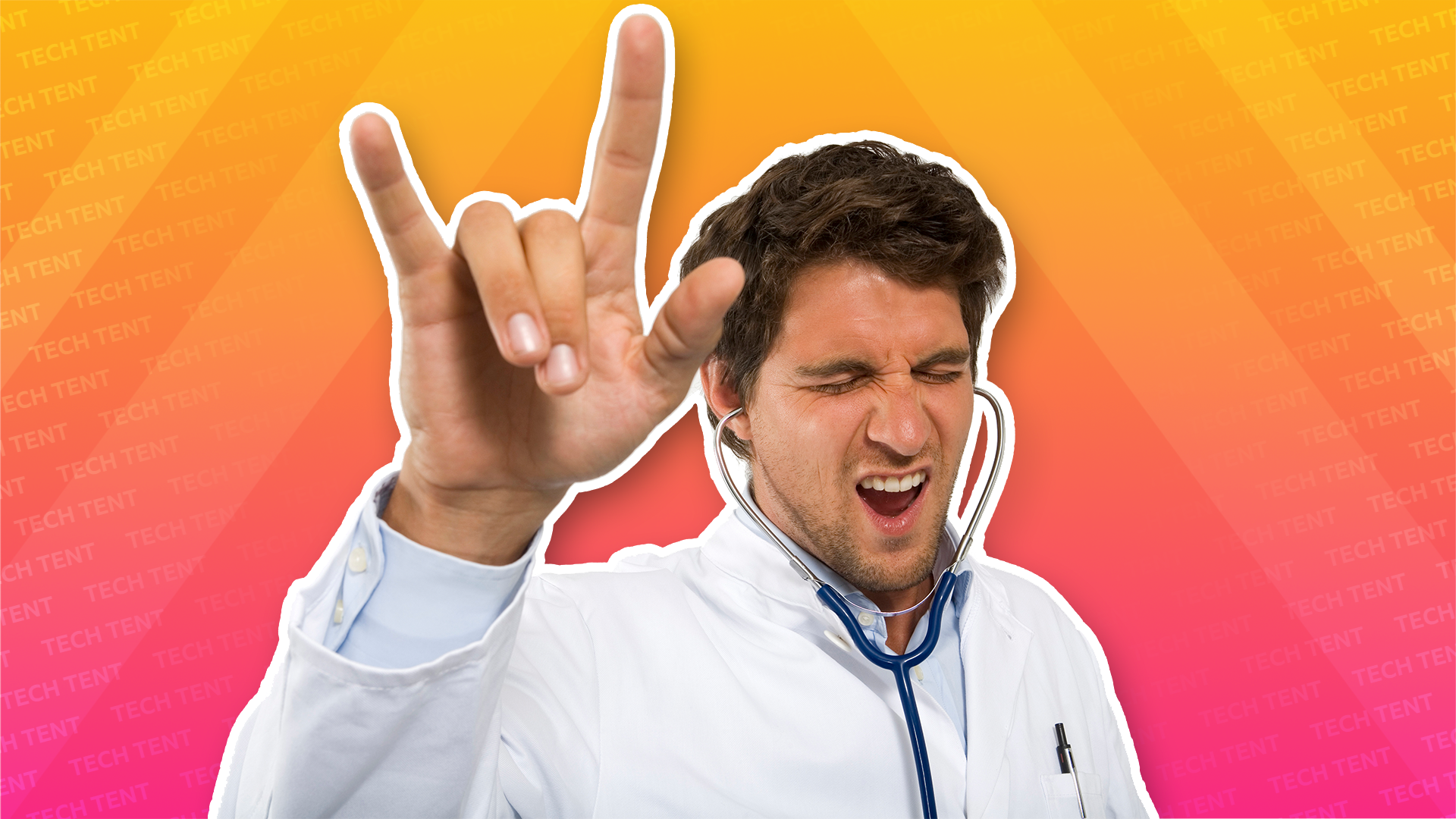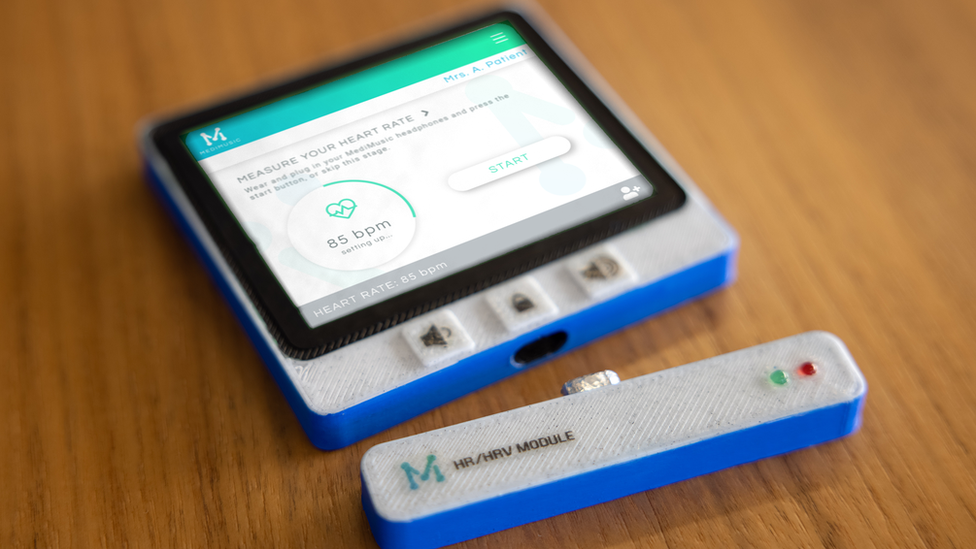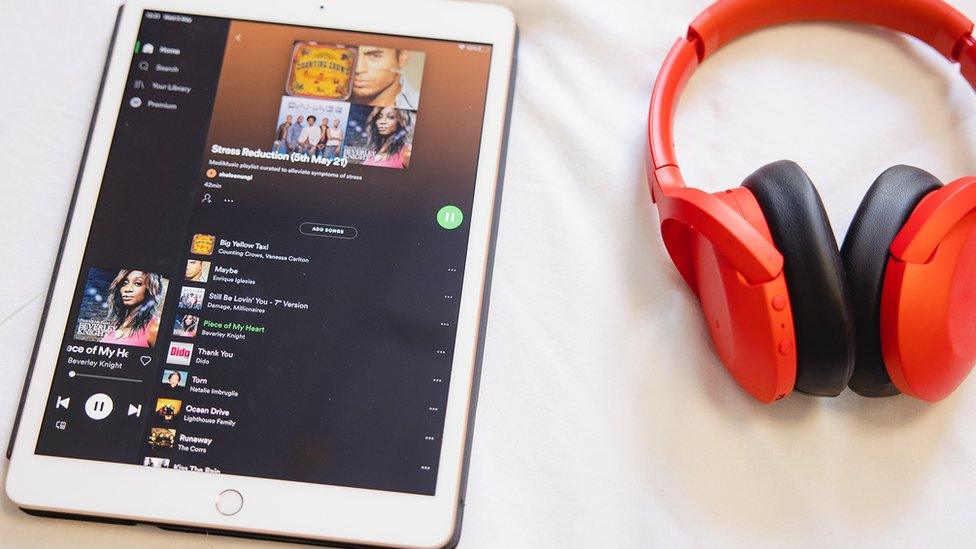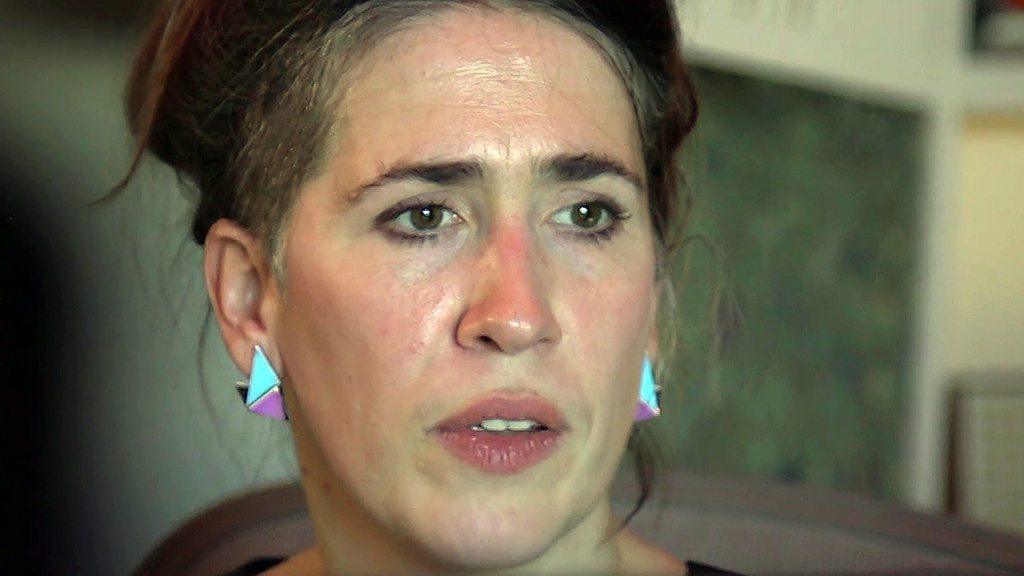Tech Tent: Is AI music the best medicine?
- Published

Ever tried to relax after a stressful day by putting on some music - a little Mozart, some gentle jazz - or perhaps a little Natalie Imbruglia? Well, now a start-up tech company says it is proving that the right playlist can have medical benefits.
On this week's Tech Tent, we explore whether music might really be the best medicine.

Listen to the latest Tech Tent podcast on BBC Sounds

MediMusic is a company based in Hull with big ambitions to transform healthcare with its music technology. It claims that by using artificial intelligence to craft playlists suited to an individual patient, it can reduce anxiety and pain.
The company's founder Gary Jones tells Tech Tent that MediMusic has developed algorithms which generate a playlist of up to 400 tracks designed to have a measurable effect on a patient.
"They put the headphones on, they listen to the music, and over a period of time, what will happen is that their heart rate will reduce, blood pressure will reduce, the production of the stress hormone cortisol will reduce," he says.
A heart rate monitor worn on the wrist measures the physiological effect on the patient and MediMusic says its Digital Drip system uses machine learning to swap tracks in the playlist if the listener does not respond as expected.

The NHS in Lancashire is taking an interest, trialling the technology in hospitals with patients and healthcare workers.
Dr Jacqueline Twamley, innovation manager at Lancashire Teaching Hospitals NHS Foundation Trust, described the way the system had been tested with dementia patients: "If we know something's going to be challenging for a patient, or a patient is going to get restless, we can then try the music system before that and see if it helps to keep them settled."
She says the music brought out a variety of emotions.

Natalie Imbruglia for stress relief? A sample playlist in testing shows it's not all Mozart
"Some patients are saying they were sad when it ended. We had one patient who burst out crying, which was alarming. But he said afterwards it brought back such happy memories."
But Dr Twamley says there were also measurable effects, with reductions in heart rate and levels of cortisol.
MediMusic says dementia patients saw reductions of up to 22% in their heart rate, and makes the extraordinary claim that its technology could help the NHS cut medication bills in some areas by up to a quarter.
Singer-songwriter Imogen Heap on how AI is set to transform music
But is there any proof that an AI-designed playlist is more effective than just popping on the patient's favourite tracks? Gary Jones insists that research shows that your own choice of music won't necessarily reduce your heart rate, and is confident his technology will end up being prescribed to both patients and stressed medical staff.
Big claims are made for the savings artificial intelligence can deliver in all sorts of industries. But healthcare providers will want to have much more data on the positive effects of music before investing in systems like this.
Also in this week's programme
Facebook's supreme court, the Oversight Board, says it was right to suspend Donald Trump, wrong to make the ban indefinite. Board member Alan Rusbridger tells us the social media giant must now make up its own mind about whether to lift the suspension or make it permanent: "We have put this firmly back in their court and said this is a decision for you to take, not for us."
And another apparent triumph for robots over humans - we meet the man whose AI won the most prestigious US crossword tournament.
Related topics
- Published15 April 2020

- Published12 May 2020

- Published23 June 2016

